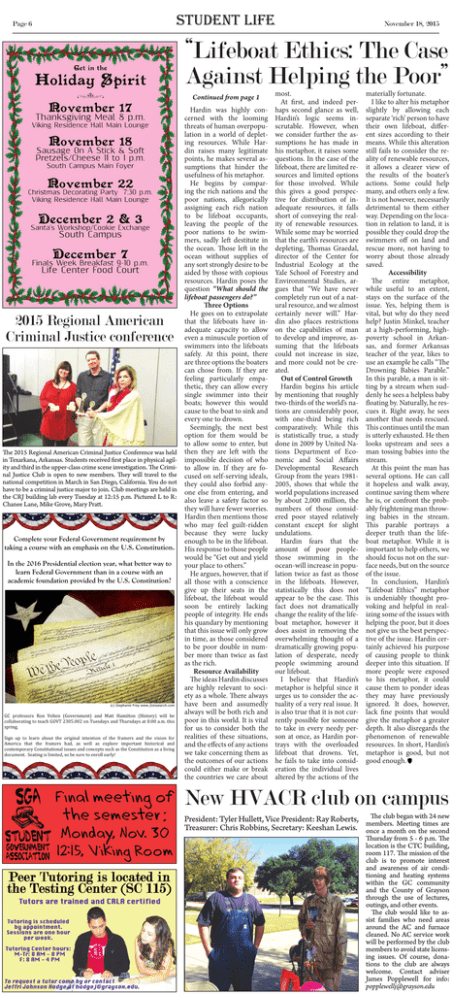

Freedom in a commons brings ruin to all." : 1244 He concluded: "Ruin is the destination toward which all men rush, each pursuing his own best interest in a society that believes in the freedom of the commons. Hardin's 1968 "Tragedy of the Commons" article calls attention to the problem of human overpopulation, and describes his perception of the current prevailing sentiment, which he asserts was influenced by Adam Smith's invisible hand concept of economics, leading to a general belief "that decisions reached individually will, in fact, be the best decisions for an entire society." : 1244 Hardin rebutted that sentiment by citing an 1833 pamphlet written by William Forster Lloyd, giving an example in which allowing herdsmen unfettered access to a shared resource (in this case, a commons or pasture ground) would result in each herdsman concluding it was in their best interest to add more animals to their herd, inevitably leading to the exhaustion of that finite resource. Lifeboat ethics is closely related to issues in environmental ethics, utilitarianism, and resource depletion. In contrast, the lifeboat metaphor presents individual lifeboats as rich nations and the swimmers as poor nations. Hardin asserts that the spaceship model leads to the tragedy of the commons. Hardin compared the lifeboat metaphor to the Spaceship Earth model of resource distribution, which he criticizes by asserting that a spaceship would be directed by a single leader which the Earth lacks.

The ethics of the situation stem from the dilemma of whether (and under what circumstances) swimmers should be taken aboard the lifeboat. The lifeboat is in an ocean surrounded by a hundred swimmers. Hardin's 1974 metaphor describes a lifeboat bearing fifty people with room for ten more. Lifeboat ethics is a metaphor for resource distribution proposed by the ecologist Garrett Hardin in two articles published in 1974, building on his earlier 1968 article detailing "The tragedy of the commons". Hardin uses the metaphor of a lifeboat to make his argument


 0 kommentar(er)
0 kommentar(er)
